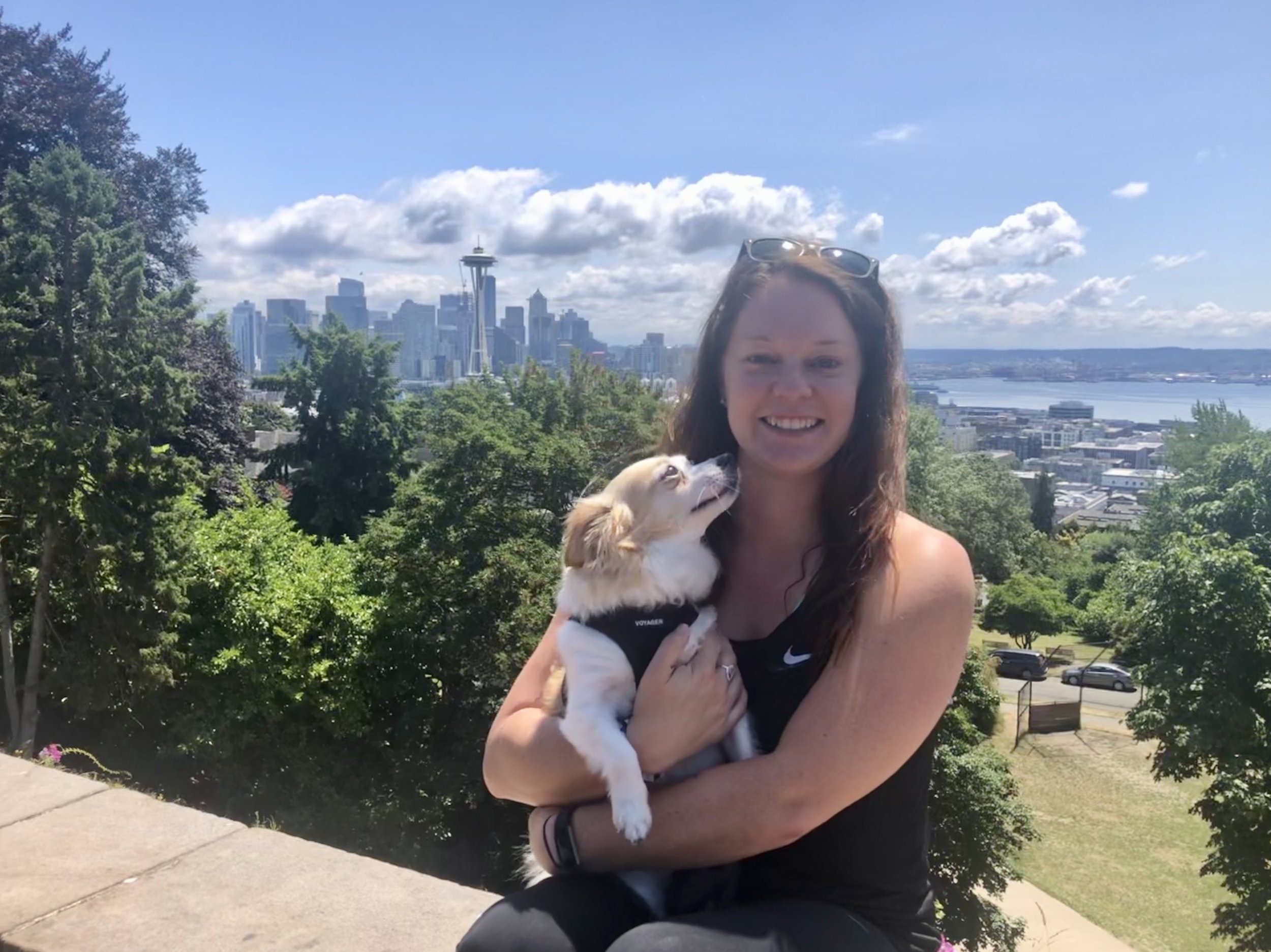Launching Spring 2025
•
Therapy & Support Groups
•
Launching Spring 2025 • Therapy & Support Groups •
You’ve spent a lifetime adapting—masking, over-explaining, pushing through burnout. Now, you're figuring out what it means to be autistic and ADHD as an adult and what that means for your past, present, and future.
This virtual therapy group offers space to process, unmask, and find strategies that actually work for you—without judgment, without pressure, and with others who understand.
You don’t have to do this alone.

Embracing Your AuDHD Identity: A Virtual Group for Late-Diagnosed Autistic & ADHD Adults
Why Join an AuDHD Therapy Group?
Navigating life as a late-diagnosed autistic and ADHD (AuDHD) adult can be a profound and sometimes overwhelming experience. Many individuals describe feeling a sense of clarity and relief upon receiving their diagnosis, but also grief, confusion, and a need to redefine their identity. This virtual therapy group is designed to support you as you unmask, self-advocate, and integrate your AuDHD traits into daily life with greater understanding and self-compassion.
Group therapy has been shown to reduce feelings of isolation, anxiety, and depression by providing a validating space for shared experiences, mutual support, and practical strategies for navigating the world as a neurodivergent adult.
Why Virtual Group Therapy?
For many neurodivergent adults, virtual therapy groups are a better fit than in-person groups. Some benefits include:
Sensory-friendly environment – Participate from the comfort of your own space.
Flexible accessibility – No need to commute; attend from anywhere.
Accommodating to different social needs – Engage at your own pace, whether you're highly verbal or prefer to listen.
Affirming space for neurodivergent connection – Interact with others who understand AuDHD challenges from lived experience.
Who Should Join?
This group is for late-diagnosed autistic and ADHD adults (18+) who:
Are exploring their neurodivergent identity and how it shapes their life.
Feel isolated in their experiences and want to connect with others who relate.
Are looking for practical tools to navigate work, relationships, and daily life.
Want to unmask in a safe space and build self-compassion.
Are interested in learning from shared experiences and gaining new perspectives.
Is This Group Right for Me?
You might benefit from this group if you:
Feel stuck between neurotypical expectations and your authentic self.
Struggle with executive function challenges (task initiation, planning, organization).
Experience sensory sensitivities that impact your daily life.
Are trying to rebuild self-trust after years of masking or invalidation.
Want to learn self-advocacy skills for work, relationships, or healthcare settings.
Are seeking support and camaraderie from fellow late-diagnosed AuDHD adults..
Topics We Will Explore
Each session blends discussion, psychoeducation, skill-building, and community support, providing both insight and practical strategies. Below are some of the core topics we’ll explore together.
This group is about understanding yourself, finding what works, and creating a life that supports your needs. If these topics resonate with you, we’d love to have you join us.
-
For many late-diagnosed autistic and ADHD adults, traditional productivity methods don’t work—and that’s not a personal failing. We’ll discuss strategies that align with how your brain actually functions, including ways to navigate time blindness, task switching, motivation, and planning without shame or burnout.
-
Masking has helped many of us survive, but at what cost? In this group, we’ll explore what unmasking looks like in safe and intentional ways, how to process the emotions that come with it, and how to redefine success on your own terms.
-
Navigating conversations, setting boundaries, and managing social energy can be challenging, especially in a world that often expects neurotypical communication styles. We’ll explore strategies for advocating for yourself, handling overstimulation in social settings, and creating boundaries that feel sustainable.
-
Your sensory experiences shape how you move through the world, yet many of us have been conditioned to ignore or suppress them. We’ll work on understanding your unique sensory profile and how to adapt your environment, identify triggers, and build strategies for sensory self-care.
-
Autistic and ADHD burnout is real, cumulative, and often misunderstood. In this group, we’ll discuss how to recognize the early signs, prevent long-term burnout, and recover in ways that are actually restorative. We’ll also explore emotional regulation strategies tailored to the unique ways AuDHD individuals process and experience emotions.
-
Many of us have a complicated relationship with structure—too much can feel stifling, too little can lead to chaos. We’ll discuss how to create routines that support you without rigidity, how to use pattern recognition as a strength, and how to build predictability in a way that enhances rather than restricts your life.
What to Expect in an AuDHD Therapy Group
For many late-diagnosed autistic and ADHD (AuDHD) adults, finding a space that truly feels validating and accommodating can be a challenge. This therapy group is designed to provide a supportive, neurodivergent-affirming environment where individuals can connect, share experiences, and gain practical tools for navigating life as an AuDHD adult.
A Judgment-Free Space
This group is a place where participants don’t have to explain or justify their experiences. Whether it’s struggling with time blindness, the exhaustion of masking, or sensory overload, members can speak openly without fear of being misunderstood. Conversations center on lived experiences, fostering a sense of belonging and shared understanding.
Validation and Self-Exploration
Many late-diagnosed individuals wrestle with identity integration after years of masking or feeling "different" without knowing why. This group offers an opportunity to explore what it means to be both autistic and ADHD in an affirming space. Rather than focusing on changing behaviors to fit neurotypical expectations, discussions will emphasize self-acceptance, identity exploration, and personal growth.
Community and Connection
One of the most valuable aspects of group therapy is the sense of community it fosters. Many AuDHD adults feel isolated in their experiences, particularly if they have spent years masking or adapting to environments that don’t meet their needs. This group provides a space where individuals can connect with others who share similar experiences, build meaningful relationships, and feel understood.
Psychoeducation and Practical Insights
Each session will include psychoeducation on key AuDHD-related topics. Some areas of focus may include:
Sensory Regulation – Understanding individual sensory profiles and strategies for managing sensory overload.
Executive Function Strategies – Tools for handling task initiation, organization, and overcoming time blindness.
Masking and Unmasking – Identifying masking behaviors, understanding their impact, and finding ways to unmask safely.
Identity and Self-Acceptance – Processing the emotions surrounding a late diagnosis and integrating it into a cohesive self-concept.
Tools and Coping Strategies
In addition to discussion and validation, this group provides practical strategies for managing daily life with AuDHD. Participants will have the opportunity to learn and share coping tools related to:
Burnout Prevention and Recovery – Recognizing early signs of overload and developing sustainable self-care practices.
Emotional Regulation – Understanding how emotions manifest differently in AuDHD individuals, from delayed responses to intense emotional swings.
Social Overwhelm and Communication – Navigating social fatigue, setting boundaries, and using scripts or accommodations for more comfortable interactions.
Routines and Flexibility – Finding a balance between structure and spontaneity that works without rigidity or guilt.
FAQs
-
These groups are didactic and interactive in nature, meaning that the facilitator (a Licensed Clinical Social Worker) leads and structures the group.
Each week, the group facilitator guides discussions and processes by: providing education, answering questions, and teaching structured exercises and interventions. Each week will be different, but these are the common areas of activities to anticipate.
Groups are once per week for 8-10 weeks for 75 minutes each time.
A full schedule will be available prior to the first session.
-
Sharing is never required, and you are welcome to participate at your own pace. Some group members may prefer to listen and observe in the beginning, while others may feel ready to share right away. Both are valid.
That said, group therapy is an interactive experience, and meaningful connection often comes from engaging in discussion. If you're seeking emotional and interpersonal connection, sharing your thoughts, experiences, or reflections can be a powerful way to build those relationships.
You will always be invited but never pressured to share. Whether you choose to speak frequently or simply take in the discussion, the group remains a judgment-free space designed for support, insight, and growth.
-
These groups are designed to be an interactive and supportive space where participants can explore vulnerability, build connections, and gain deeper insight into their emotional needs.
To foster authenticity and trust, we ask that all participants use at least their first name and keep their cameras on during sessions.
This helps create a sense of community and allows for more meaningful interactions. If you want to discuss accommodations around this, we can discuss those on a case by case basis.
Our sessions take place on a fully encrypted, HIPAA-compliant platform with strict confidentiality measures. Access is limited to registered group members only, ensuring a secure and private space for open discussion.
-
Each group typically includes 8-10 members, with a minimum of 6 participants required to launch a series. This ensures a balance between intimate discussions and diverse perspectives, allowing for meaningful connections while keeping the group small enough for everyone to engage comfortably.
Consistent attendance is expected to maintain the continuity and trust within the group. Since each session builds upon the last, your participation contributes to both your own experience and the collective growth of the group.
If you are unable to attend a session, we ask that you notify the therapist in advance so that adjustments can be made, including sharing missed materials or restructuring certain activities as needed.
-
No. Payment information is kept on file on an encrypted, secure platform in which are charged after each session.
-
Complete the Interest Form
Fill out a short form to let us know you're interested and to help us understand you as we form new groups to launch in Spring 2025.Schedule a Free Video Consultation
After reviewing your form, we’ll reach out to schedule a free Zoom consultation to discuss the group, answer any questions, and ensure it's a good fit.Finalize Enrollment
Once the consultation is complete, we’ll send you the necessary consent forms. After all forms are signed, your registration will be confirmed, and you’ll receive confidential scheduling details and a secure virtual link for the 8-week group.
Is Group Therapy the Right Choice for You?
Group therapy isn’t just an alternative to individual therapy—it’s a different kind of support that offers validation, shared experience, and a space to practice skills in real time with others who truly understand.
This group might be a good fit if:
You want a space to process and share with others who actually understand what you’re going through.
You’re looking for practical strategies but don’t have the time, energy, or budget for weekly individual therapy.
You’ve been doing individual therapy but feel stuck and could use fresh perspectives.
You’re craving community—not just professional guidance, but support from people who “get it.”
You want to explore unmasking, self-acceptance, and identity in a setting that encourages reflection and shared experiences.
You’re feeling burned out and need a structured but lower-pressure way to engage in mental health support.
Group therapy also challenges individuals to engage in a layer of vulnerability that often isn’t reached in one-on-one sessions. It creates opportunities to examine interpersonal patterns, work through fears, and receive insight from others in a way that individual therapy can’t fully replicate.
A Structured, Supportive Space for Growth
This closed, time-limited therapy group is designed specifically for late-diagnosed autistic and ADHD adults who want a structured, focused approach to self-discovery and support. Group therapy isn’t just about learning—it’s about real-time self-exploration and connection. Participants often gain insight into their interpersonal needs, challenge fears, and rebuild self-trust alongside others who truly get it.
Over 8 to 10 weeks, you’ll meet with the same group of individuals, creating a consistent and trusted space to:
Learn about key topics like unmasking, burnout, sensory regulation, and executive function.
Develop practical coping strategies that work with your brain, not against it.
Share and process experiences with people who truly understand.
Gain insight and validation in a space designed for neurodivergent minds.
Because this is a closed group, new members won’t join after the first or second session, allowing for deeper conversations and stronger connections. Each session blends psychoeducation, guided discussions, and interactive support, giving you the tools to navigate daily challenges while building self-trust.
Of course you are nervous! This is COMPLETELY NORMAL and TO BE EXPECTED!!
You are challenging yourself to an opportunity to evolve, grow, develop healthy tools, and express your feelings with others that have shared experiences with you. I always say to every client: IF YOU FEEL UNCOMFORTABLE, YOU SOUND HUMAN!
What Is Unmasking?
Unmasking refers to the process of reducing or letting go of the social camouflage that many autistic and ADHD individuals develop to fit into neurotypical expectations. Masking often involves suppressing natural behaviors, mimicking neurotypical communication styles, or forcing oneself to conform to societal norms—often at the cost of mental and emotional well-being.
For late-diagnosed autistic and ADHD adults, unmasking is a key part of self-discovery and healing. After years or even decades of trying to "pass" as neurotypical, many people reach a point where masking becomes exhausting, unsustainable, or even harmful to their sense of self.
Signs of Masking
Masking can look different for each person, but common examples include:
Forcing eye contact even when it feels unnatural or uncomfortable.
Suppressing stimming (self-soothing movements) like fidgeting, rocking, or echolalia.
Mimicking social cues, such as scripted responses or mirroring body language.
Hiding sensory sensitivities to avoid seeming “difficult,” such as tolerating bright lights, loud noises, or uncomfortable clothing.
Overcompensating in conversations by planning responses ahead of time or over-explaining to avoid misunderstandings.
Pushing through burnout instead of acknowledging and respecting energy limits.
Adopting a persona in different social settings to appear more neurotypical.
Why Do People Mask?
Many autistic and ADHD individuals develop masking behaviors out of necessity for survival in a world that often stigmatizes neurodivergence. Masking can be a way to:
Avoid bullying, discrimination, or social rejection.
Increase job or academic success in neurotypical-dominated environments.
Maintain relationships with family, friends, or colleagues.
Feel a sense of belonging, even if it comes at a personal cost.
The Costs of Masking
While masking can be an adaptive survival strategy, it often comes with significant downsides:
Chronic exhaustion and burnout from constantly suppressing natural behaviors.
Loss of self-identity due to years of performing rather than being authentic.
Increased anxiety, depression, and dissociation from the strain of masking.
Struggles with self-acceptance, leading to feelings of inadequacy.
Delayed diagnosis, as many individuals appear “too functional” to be recognized as autistic or ADHD.
What Does Unmasking Look Like?
Unmasking is not about rejecting all social adaptation—it’s about finding balance and authenticity while prioritizing mental well-being. The process can involve:
Reconnecting with natural instincts by rediscovering stimming, special interests, or sensory preferences.
Advocating for personal needs, such as setting boundaries, requesting accommodations, and embracing self-advocacy.
Building a neurodivergent community by surrounding oneself with others who affirm and accept authentic neurodivergence.
Letting go of rigid self-expectations, recognizing that productivity, communication, and social norms don’t have to fit neurotypical standards.
Practicing self-compassion, acknowledging that unmasking is a process rather than an overnight change.
Unmasking in Group Therapy
One of the most powerful aspects of joining an AuDHD therapy group is that participants don’t have to mask. In a group setting designed specifically for neurodivergent adults, individuals can:
Engage in conversations without feeling pressured to perform neurotypical social rules.
Learn and share strategies for balancing unmasking with real-world responsibilities.
Explore what authenticity means on a personal level, at an individual pace.
Witness others’ experiences and see that they are not alone in this journey.
Unmasking is not about abandoning all coping strategies—it’s about choosing when and how to show up as your authentic self in a way that feels safe and empowering.
If you’re interested in learning more about unmasking and connecting with others who share similar experiences, joining an AuDHD therapy group can be a meaningful step toward self-discovery, acceptance, and long-term well-being.

